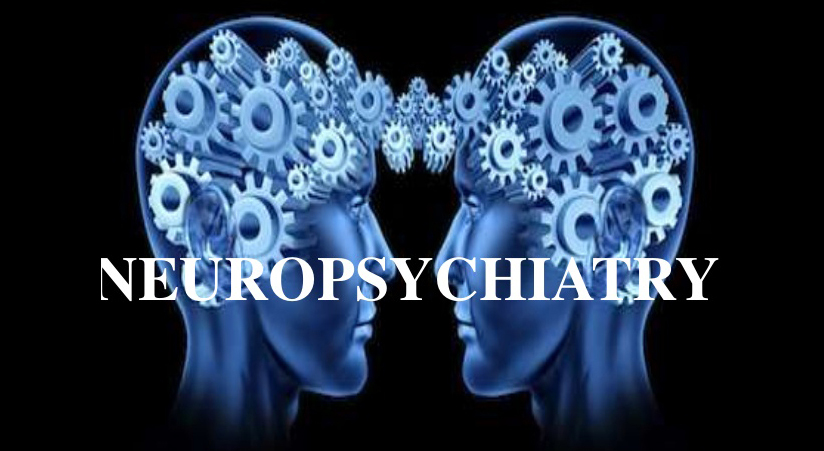Neuropsychiatry

Neuropsychiatry is a field that both explores brain behavior relationships and focuses on the assessment and treatment of patients who have neurologic disorders along with cognitive, emotional, and/or behavioral problems.
Lawyers looking for neuropsychiatrists for certain kinds of legal cases might define a neuropsychiatrist as somebody who is certified in both neurology and psychiatry. While that is a neurologist and a psychiatrist, it is not a neuropsychiatrist. It ignores the fact that there is a specific body of knowledge and training that is necessary for the field of neuropsychiatry. You can take care of patients with stroke or patients with depression, but that does not mean that you have expertise taking care of the stroke patient who is depressed.
Anyone who suffers from any psychological and other related conditions — such as head injury, epilepsy, attention deficit hyperactivity disorder, irritability, dementia, or any other organic mental disorder — may be eligible for evaluation and treatment by a neuropsychiatrist.
Neuropsychiatry is the interface of Psychiatry and Neurology that deals with mental disorders, which in most cases can be shown to have their origin from an identifiable brain malfunction.
Neuropsychiatry can be defined as a sub-specialty of Psychiatry, aiming to understand the link between the mind, body and its behavior.
The training of Neuropsychiatrist in both organic (neurological) and psychiatric aspects of illness places them in unique position to deliver this care.
Neuropsychiatrists work alongside other Neuroscience clinicians, such as a neurologist and neurosurgeon, in order to provide comprehensive care of patients within the context of a multi-disciplinary setup.
- Alzheimer’s Disease
- Anxiety
- Attention Deficit Hyperactivity Disorder
- Behavioral Disturbances
- Brain Injury/Stroke
- Conversion Disorders
- Dementia
- Depression
- Developmental Disorders and Pediatrics
- Epilepsy
- Forensics
- Frontotemporal Dementia (FTD)
- Head Injury
- Huntington’s disease
- Irritability
- Medical Conditions
- Mixed Dementia
- Movement Disorders
- Organic Mental Disorder
- Other Neurological Disorders
- Other Psychiatric and Mental Disorders
- Parkinson’s Disease (Lewy Body Dementia)
- Schizophrenia
- Traumatic brain injury
- Vascular dementia
